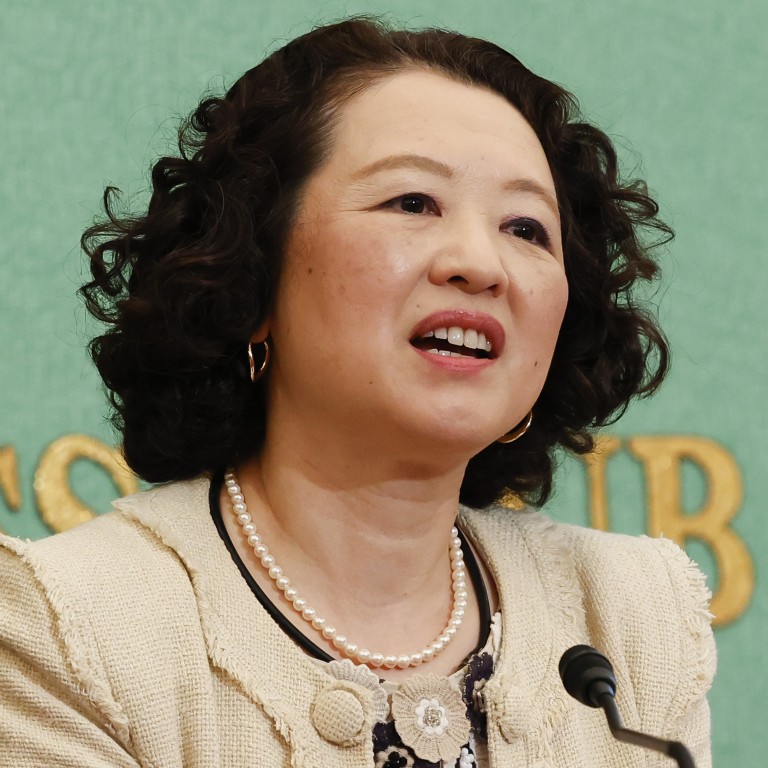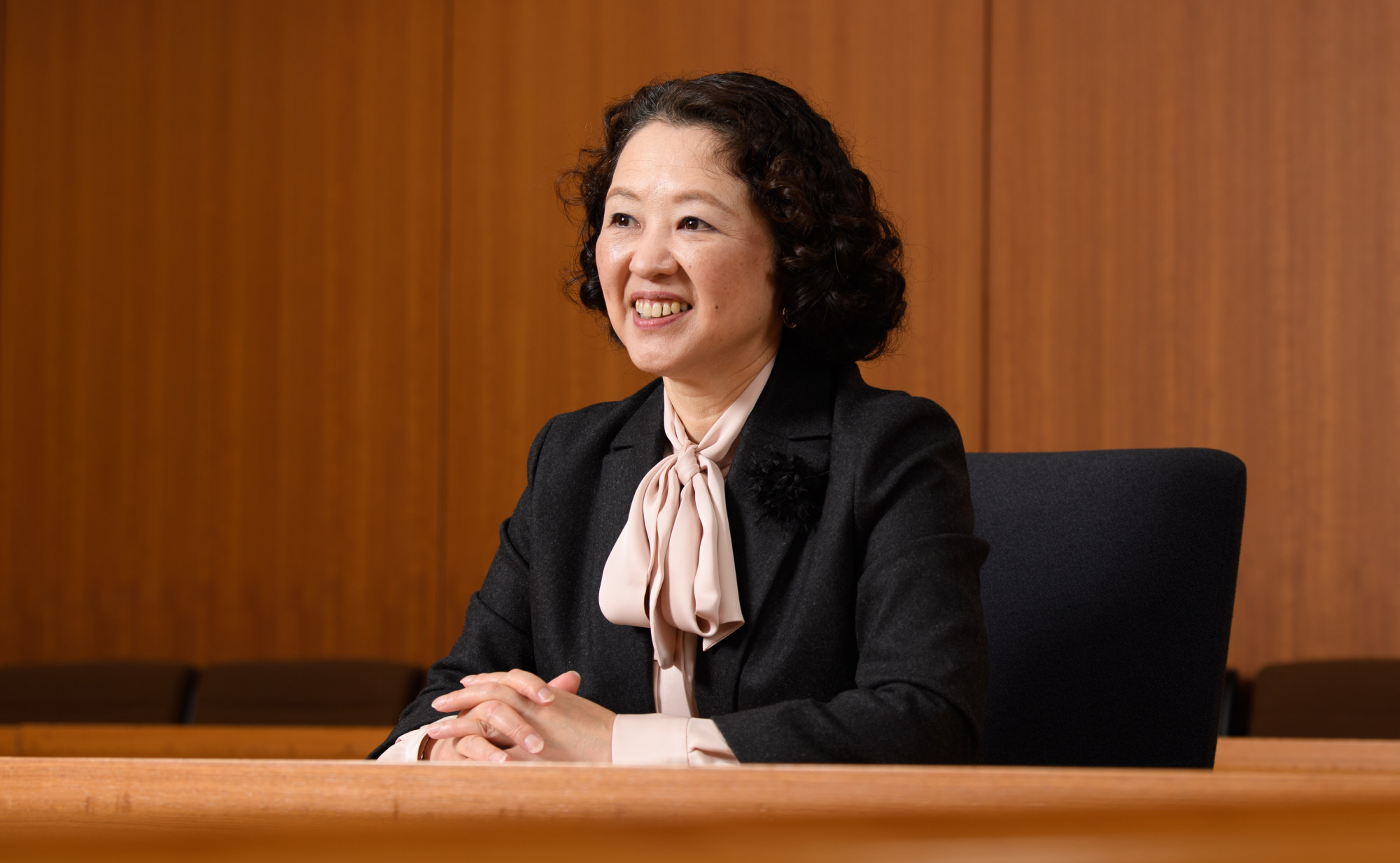
Japan’s labour chief wants 4 in 10 bosses to be women by 2030. She just needs to convince women it’s possible
- Japan’s first female labour chief Tomoko Yoshino says both men and women in the country are still deeply resistant to the idea of female bosses
- After breaking the glass ceiling herself, Yoshino is on a mission to help more women rise through the ranks and also provide better support for casual workers
“The perception that roles should be divided by gender remains strong,” said Tomoko Yoshino, the first woman to become president of the 7 million-member Japanese Trade Union Confederation, also known as Rengo.
“Even if women are capable, they lack confidence. Men are able to pass as capable, even if they’re not,” she said. “I sense that disparity very strongly.”

After breaking the glass ceiling at Rengo, Yoshino is looking at ways to help other women rise through the ranks in the country that has one of the developed world’s largest gaps in gender equality.
Japan ranks 120th among 166 countries in the World Economic Forum’s Global Gender Gap Index 2021, and the situation for many women has worsened during the pandemic because they make up the bulk of the casual labour force that has borne the brunt of lay-offs.
Yoshino is mulling ways to provide practical training for women in presentation and persuasion skills to help them advance.
In Japan, if you don’t have years of experience, you won’t be treated as the equal of a man
While about 36 per cent of Rengo’s membership and 34.5 per cent of its executives are female, the veteran union executive said she’s determined to shift the gender balance further, with a target of having women in 40 per cent of decision-making positions by 2030.
“There is resistance among both men and women to women becoming leaders,” she said.
She welcomed its proposed pay rises for nurses and others, but sees some aspects of the plan as more helpful for the elite than struggling workers. Objectives such as increased job mobility and retraining are out of reach for single mothers and many others, she said.

More labour market fluidity has been a goal for successive Japanese governments, with the lingering jobs-for-life culture seen as hurting productivity. A government proposal unveiled this month aims to make it easier for people facing harsh working conditions to change jobs.
“Highly qualified people who get headhunted can switch jobs without help,” Yoshino said in an interview last week. “But that’s only a tiny proportion of the employed workforce. For many people it would be difficult.”
One of her goals is to support casual workers, even though most aren’t unionised. Rengo is calling for irregular workers’ pay to be raised to 1,150 yen (US$10) an hour, in a policy she said was ultimately supportive of the group’s members. If conditions are not improved for casual workers, there is a risk that conditions for regular employees could be downgraded to match them, she said.
“In that sense, helping irregular workers can affect the regular employees,” she said. “Trying to help those at the bottom is one role of a labour union, and I think the time has come.”
Japanese man adopts wife’s name in bid to challenge nation’s sexism
Yoshino hails from a relatively small company, rather than one of the major industry unions that dominate Rengo. She began her career at sewing-machine maker Juki Corp. in 1984, working her way up through a union representing metal and other manufacturing workers.
Following her appointment last month, her office is still crammed with pots of the expensive orchids often given as congratulatory gifts.
“What’s important is to keep going,” she said. “It’s difficult for someone in their 20s to speak out. In Japan, if you don’t have years of experience, you won’t be treated as the equal of a man.”

